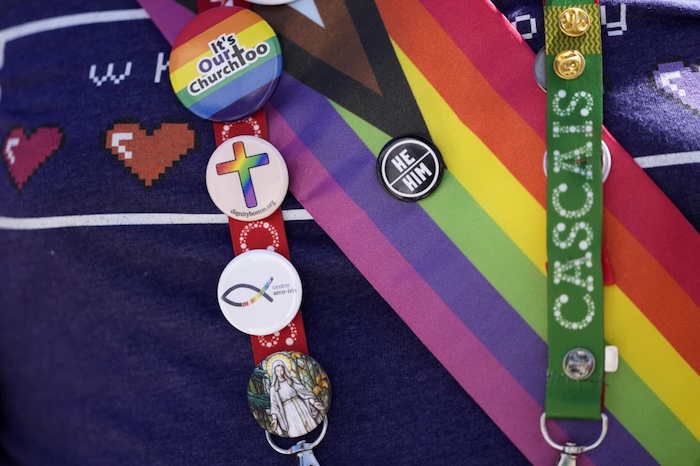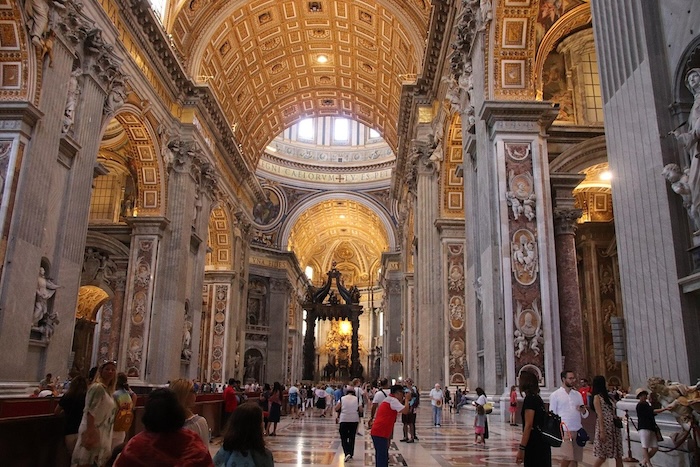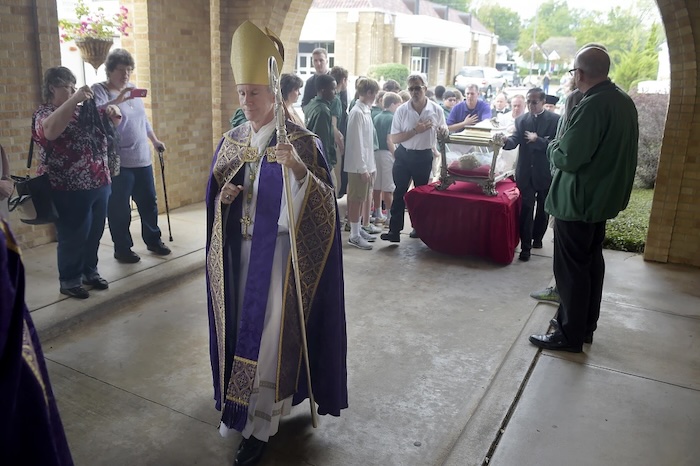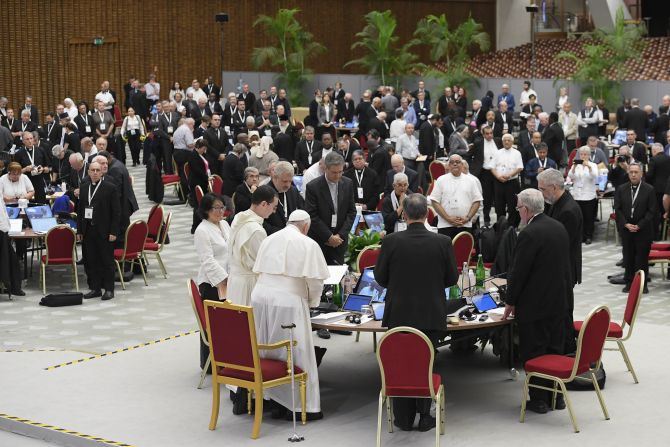
By DAVID CRARY
The Catholic Church, in its doctrine, still rejects same-sex marriage and condemns any sexual relations between gay or lesbian partners as “intrinsically disordered.” Yet Pope Francis, during his nearly 11-year papacy, has done far more than any previous pope to make the church a more welcoming place for LGBTQ+ people.
It became clear early in Francis’ papacy that he was going to articulate a gentler, more tolerant approach. The initial high-profile moment came in 2013 — during the first broadcast news conference of his papacy — with his memorable “Who am I to judge” comment when he was asked about a purportedly gay priest.
Signals of this approach had come earlier. As archbishop of Buenos Aires, he had favored granting legal protections to same-sex couples as an alternative to endorsing gay marriage, which Catholic doctrine forbids. The Vatican confirmed in 2020 that this was indeed the pope’s belief.
Some recent highlights:
In January 2023, Francis assailed the laws on the books in many countries that criminalize homosexuality and called for their elimination
“Being homosexual isn’t a crime,” Francis said during an interview with The Associated Press.
In 2008, under Pope Benedict XVI, the Vatican had declined to sign onto a U.N. declaration calling for an end to such laws.
Francis acknowledged that Catholic bishops in some regions support laws that criminalize homosexuality or discriminate against LGBTQ people. But he attributed such attitudes to cultural backgrounds, and said bishops need to recognize the dignity of everyone.
___
Another reversal came in late 2023, when the the Vatican made public a statement saying it’s permissible, under certain circumstances, for transgender people to be baptized as Catholics and serve as godparents.
The document was signed by Francis and Cardinal Víctor Manuel Fernández, who heads the Vatican’s Dicastery for the Doctrine of the Faith.
If it did not cause scandal or “disorientation” among other Catholics, a transgender person “may receive baptism under the same conditions as other faithful,” the document said.
Similarly, the document said trans adults — even if they had undergone gender-transition surgery — could serve as godfathers or godmothers under certain conditions.
The new pronouncement reversed the absolute bans on transgender people serving as godparents issued by the Vatican doctrine office in 2015. Among the beneficiaries: a community of transgender women — many of them Latin American migrants who worked in Rome as prostitutes — who made monthly visits to Francis’ weekly general audiences and were given VIP seats.
The pope’s outreach to trans people contrasts with the stance of some conservative Catholic prelates. In the United States, several dioceses have targeted trans Catholics with restrictions and refusals to recognize their gender identity. Yet at the same time, a growing number of U.S. parishes have welcomed trans people.
___
The pope’s mixed record on LGBTQ+ issues was epitomized by the Vatican’s 2023 synod bringing together hundreds of bishops and lay people from around the world to confer on the future of the church. The advance agenda specified that LGBTQ+ issues would be discussed; one of Francis’ hand-picked delegates was the Rev. James Martin, a U.S.-based Jesuit priest who is one of the most prominent advocates of greater LGBTQ+ inclusion in the church.
Yet when the final summary of the three-week synod was released, there was not a single mention of LGBTQ+ people, reflecting the influence of Catholic conservatives who oppose Francis’ overtures to that community.
___
On Monday, the Vatican released a document in which Francis formally approved allowing priests to bless same-sex couples, stipulating that people seeking God’s love and mercy shouldn’t be subject to “an exhaustive moral analysis” to receive it.
The document elaborates on a letter Francis sent to two conservative cardinals that was published in October. In that preliminary response, Francis suggested such blessings could be offered under some circumstances if they didn’t confuse the ritual with the sacrament of marriage.
The new document repeats that condition and elaborates on it, reaffirming that marriage is a lifelong sacrament between a man and a woman. And it stresses that blessings in question must be non-liturgical in nature and should not be conferred at the same time as a civil union, using set rituals or even with the clothing and gestures that belong in a wedding.
Even with these conditions, it’s a marked change from 2021, when the Vatican’s Congregation for the Doctrine of the Faith said flat-out that the church couldn’t bless the unions of two men or two women because “God cannot bless sin.”
Complete Article ↪HERE↩!




